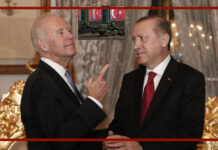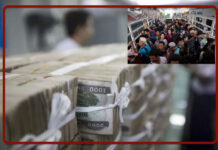
Russia and China are trying to make the most of the current situation. For Russia it is about finding alternative markets for China to eliminate dependencies on other countries.
The military-industrial complex is saving Russian industry reads the Russian social sphere on December 1st. The demand for a quick replenishment of all military production and the desire to equip the soldiers of the Russian Armed Forces gave a second boost to Russian industry. Despite the sanctions and the loss of personnel during the mobilization, Russia has managed to reduce the level of production decline.
The increase in spending on the military budget drags down all spheres connected with the military-industrial complex. In particular, the production of clothing has grown only thanks to orders from the army; the same goes for the computer, electronic and optical sectors, whose production increased by almost 20%.
“Heads scared, but hands doing”: this is how one might describe the state of Russian industry in 2022. The sanctions seemed like a huge blow, so much so that the Russian Finance Ministry produced apocalyptic forecasts of a 10% drop in whole economy. The army saved industry and with it forecasts for an improvement in the Russian economy, which is now projected to decline by 2.9%.
It seems that the fate of the military and the Russian economy are inextricably linked right now.
In the Near East, US tech sanctions against China following the escalation in the Taiwan Strait prompted China to reduce reliance on Britain’s largest chip maker, ARM.
Today, ARM architectural solutions underlie a significant share of semiconductor products, including Chinese ones. But times change and technology doesn’t stand still: the key to success in China is an open RISC-V architecture that will protect IT potential from Western sanctions.
This architecture is not new and is in high demand by chip designers around the world. For example, in September, the RISC-V Alliance was created in Russia, which is engaged in the development and development of the system, and the Russian company Aquarius intends to create a line of its processors based on RISC-V.
In China, the biggest companies have already been involved in developing new semiconductor chips, including Alibaba Corporation, telecommunications holding company Tencent and the National Academy of Sciences of China. In general, China’s intentions look serious.
Graziella Giangiulio

















